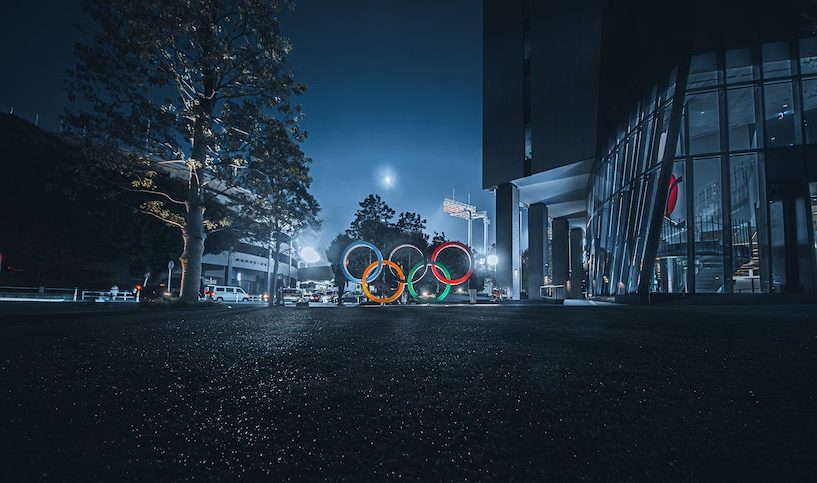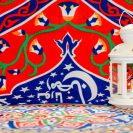The Olympics are always an exciting event; athletes, coaches, family members and the administrators have been working really hard just for a chance to compete. Qualifying for the games tells the world that you are one of a handful of hopefuls who have lived, breathed and walked the many miles needed to become a member of the elite. Even us non-athletes want to join in from the moment the torch is lit, to the exciting and artistic ceremony to cheering from our homes to clapping for our competitors and tearing up when we see our flag raised.
This year has been exceptional in so many ways. Since the games began in 1896, the event has only been cancelled three times, once for World War I and twice for the second World War. Until 2020, when it was postponed because of the pandemic. And now that they are currently being held, the spectator stands are empty to prevent the spread of the disease. We’re still calling them the 2020 events because of branding and marketing reasons and maybe far off in the future, we will have forgotten that it was the year that changed everything.
The opening ceremony felt muted, shorter and restrained compared to past events. It also doesn’t help that our most recent memory is of Rio, land of Carnavale, huge costumes, loud music and big parties. Tokyo’s games started with a remembrance of all the victims of COVID-19 with a simple interpretive dance. Next they chose to start the games by “building the stage”. Notably, the performance included differently abled bodies with performers in wheelchairs which was a wonderful nod to how we all want to move towards a world that accepts everyone and makes the world accessible to them.
The ceremony was opened on the 23rd of July by Naruhito, Emperor of Japan and the Cauldron was lit by Japanese American tennis prodigy Naomi Osaka. This year 205 nations are being represented by 11,326 athletes competing in 339 events in 33 sports. During the opening, the Parade of Nations started with Greece, which has been the tradition since the beginning of the modern Olympics. The rest of the countries followed in Japanese Alphabetical Order. This is always fun to watch, especially for the fashion. It is always exciting to see how countries choose to represent themselves. With some countries opting for very traditional outfits like Bahrain and Tuvalu, others using their flag colors to adorn tracksuits and other items of clothing like Italy and Ukraine and some like Bermuda showed their sense of humor by donning Bermuda shorts. Kuwait chose an interesting path, the men wore traditional white dishdasha’s, while the women wore simple darra’as with a banded collar that mirrored the men’s and a woven sadu ribbon down the front. It felt both futuristic and minimalist while honoring heritage and culture.
This year, ten Kuwaitis are in Tokyo hoping for a chance to step up on a podium and hear the anthem, especially that in Rio they competed under the International Olympic Flag. In the track and road events, sprinter and runner Yaqoub Al-Youha will be competing in the 110m hurdle while Mudhawi Al-Shammari will run the 100m race. Mohammad Al-Mosawi is representing Kuwait in Karate.
At the time of writing this Abdullah Al-Rashidi has already won a Bronze medal for the Men’s Skeet Shooting, a recreational and competitive activity where participants, using shotguns, attempt to break clay targets mechanically flung into the air . Alongside him is Mansour Al-Rashidi also competing in the same sport. Similar to skeet shooting, is trap shooting, which involves shooting hundreds of pellets from a single source at a time, at a target that is moving quickly downrange. Abdulrahman Al-Faihan and Talal Al-Rashidi are Kuwait’s champions and competitors this year.
If you have never, they are rowing boats designed for a single person who propels the boat with two oars, one in each hand. They are fitted with riggers that symmetrically apply force to each side of the boat and (usually) a fin towards the rear. Abdulrahman Al-Fadhel, will be representing Kuwait in the Men’s Single Sculls event.
This year, we have two swimmers in the games. Abbas Qali is competing in the 100m freestyle swimming race. And first-time Olympian and first Kuwaiti female flag bearer, Lara Dashti is swimming the 50m freestyle race. She posted on Instagram about how excited to be honored by the task and said, “No words can describe the feelings and emotions I had carrying the flag of my dear Kuwait…. It was such an honor”
We wish them all the luck in the world, because they have already done all the work they could have. We’re hopeful and we’re glad that we have more representation in the global arena, that inspires younger generations to pick up a javelin, go running or dive off a springboard, thinking that they too could someday end up at the Olympics.
Photo by Ryunosuke Kikuno on Unsplash.




 اللجنة الاولمبية (@kuwaitolympic)
اللجنة الاولمبية (@kuwaitolympic)






